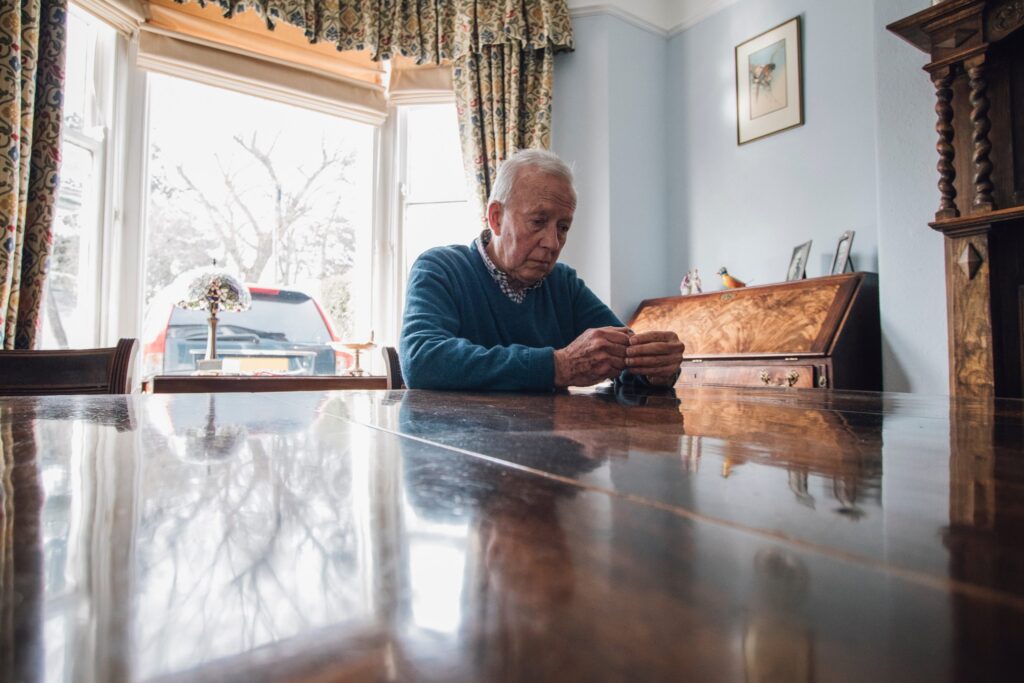Depression and isolation has become increasingly common among today’s aging population, and they come with significant health risks. Higher than average suicide rates in those over the age of 85 years old are causing wide-spread concern across the United States. Unfortunately, stereotyping can get in the way of getting an aging loved one who is depressed or isolated the help they need. You may be thinking your parent is too wise, mature, and happy, basking in their golden years, to be at risk for such drastic measures. Or, you might think that depression is a normal as you get older because of the accumulation of loss of friends, family, and function as you age. Either way, you could be putting yourself at risk to overlook the warning signs. Depression, when left untreated, can erode a person’s physical health, emotional well-being and lead to an early death. Common causes of depression and isolation While clinical depression in the elderly is common, that doesn’t mean it’s normal. Late-life depression affects about 6 million Americans ages 65 and older. But only 10% receive treatment for depression. Here’s some of the most common causes:
- Loneliness: Feeling lonely increases the risk for accelerated cognitive decline, poorer cognitive function, and we are more likely to perceive social threats, a self-defeating behavior. Older adults who are lonely are more likely to have poor psychological health and be dissatisfied with family and social relationships. Loneliness is also a cause of suicide and suicide attempts.
- Medication Side Effects: Some prescription drugs can increase the risk of depression. Medications used to treat high-blood pressure or high-cholesterol have been linked to depression. As well as corticosteroids and opioids, all common medications used to treat various conditions in the elderly.
- Loss of function/ability: No matter your age, needing to rely on others to do everyday activities you once could do yourself is emotionally hard. Any medical condition, especially those that are painful, debilitating, or life-threatening can result in symptoms of depression. Suffering a heart attack, a broken bone after a fall, or weakness related to an illness that require more dependence on others to care for yourself or manage a household can put you at risk for depression.
- Loss of family and friends: Losing a spouse or close friend is difficult. Grief and depression look very similar. That is one key difference with depression. People suffering from major depression tend to be isolated and feel disconnected from others and may shun such support and assistance.
- Family history: Family history of depression puts your loved one at increase risk.
Social disconnectedness increases the risk of dementia, hospital readmission and falls. Social isolation is a multifaceted condition that falls into two main types. The two types are often linked, but you can have either one without the other:
- Social disconnectedness (often referred to simply as social isolation), is an objective state of having limited social interactions or a small social circle, and
- Perceived isolation, which is a subjective emotional state of feeling lonely or perceiving a lack of social support.
For seniors living alone in their own home, the risk of social isolation dramatically increases if they experience declining mobility, have a lack of access to transportation, or experience anxiety about going out because of a fear of falling. How to help While aging is an inevitable part of life, depression doesn’t have to be. Early recognition, diagnosis and treatment are key to getting your aging loved one the support they need. If you are concerned about a loved one, keep these things in mind:
- Get your physician involved. Whether it be to evaluate if your loved one has depression, or to ensure regular review of medications that could affect your loved one’s mood is occurring, your family physician plays a very important role in supporting your aging loved one, and may not have noticed the changes in mood or behavior that your family has.
- Be tactful. Fragile self-esteem coupled with your verbal observations can be interpreted as further proof of his or her declining condition. Your aging loved one may even resent your attempts to intervene. Professionals like a psychologist can help friends and family members craft positive approaches for dealing with these and other sensitive issues.

